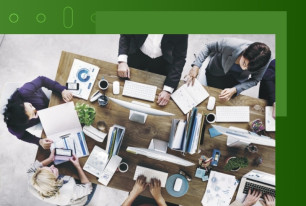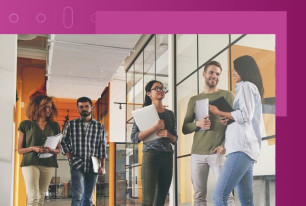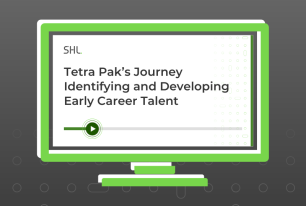The Phases of Change: How We Must Evolve to Influence a Positive Future
Out of darkness came penicillin and chocolate chip cookies and similarly we now can innovate for a brighter future beyond COVID-19.
Share
Lessons from My Father
This weekend, my Dad asked me to add him to WhatsApp. In the past, I had tried to encourage him to do this – so we can share photos in the moment, chat as a family, and check in on each other without the formality of an email – so his request came as a pleasant surprise!
Previous suggestions that he might give this a go were met with staunchly defended arguments such as – “I see you every few weeks, or, what’s wrong with just a phone call? And, why would I want people to know I’m contactable!”
This has now been outweighed by his motivation to feel socially connected, to see what others are up to, to experience emotional connection and, actively share with others that he is around and would welcome a chat.
My Dad is a professional introvert. He is at his happiest stowed away at home, with a mountain of books, constant tea and biscuits, and minimal risk of any human contact (cats are fine). I, therefore, expected this world of social distancing (as long as he remains healthy) to be ideal conditions for him to flourish.
Yet he’s embarked on change. He needs to continue his role in life, as a husband, a father, and a grandfather. To have real purpose, meaning, and connection. Suddenly, there is a burning platform and it’s exciting to see what we, as individuals, organizations, and society, could achieve.
Lessons from the Past
In times of change, it is natural to reflect on what we can learn from history, to feel prepared and ready. Looking back over the past decade or so, we’ve experienced rapid change and growth.
Rewind to 2008 with the stock market tumbling and the world plunging into financial crisis. Swiftly followed by austerity measures, bailouts and stimulus packages. A few years on and we started to see rapid development in technology.
Apple launched the iPad, and later a smartwatch. Many economies entered hyper-growth – with China fast-emerging as the largest economy in the world. As financial institutions found their feet again, we saw a grappling with compliance and ethics – making money but in a seemingly sustainable and moral way. And, companies realized that from diverse workforces, come great ideas, engagement, and results.
More recently the rate of transformation has accelerated. The gig economy has exploded, and unemployment is at an all-time low: Individuals are experiencing multi-faceted careers and there are now more web-connected video devices than the entire population of the world. Organizations are focused on becoming digital and agile with Chief Transformation, Digital and Experience Officers commonplace.
And yet, despite immense progress, global productivity appears to be flatlining. Employees are working harder, not smarter, the line between work and home life is blurred, and well-being and mental health issues have never been more prevalent.
The line between work and home life is blurred, and well-being and mental health issues have never been more prevalent.
Applying It All to the Present and Future
Enter 2020 and the coronavirus pandemic throws the world into crisis.
Beyond the fear and worry about the impact on loved ones, jobs, our communities and the longevity of our healthcare systems, there is a glimmer of real hope and anticipation for sustainable positive change.
For the last ten years, the benefits for individuals and organizations of a flexible and remote workforce have been researched and published. Yet, few organizations have really embraced this. Yes, the Googles, Netflix, and Amazons of the world have led the way with digital, agile and experience-based (consumer and employee) transformations, but how many companies have been able to drive and embed real and measurable change? How many have just dabbled to ‘tick that box’ and move on? There have always been excuses, competing priorities, reasons not to change.
We have started to think about the current situation in phases to help us, our employees and clients navigate through the unknowns:
Phase 1 – is about adjusting. To the situation, managing the crisis, facilitating home working.
Phase 2 – enabling teams and businesses to deliver some form of business as usual – switching to virtual platforms, establishing new rhythms and ways to foster human connection.
Phase 3 – sustaining productivity and engagement over the longer-term. As remote working becomes a normality and a habit, most workforces are amid digital workforce transformation.
And phase 4 – evolving. Envisioning life on the other side. The habits we want to stick around. The new growth opportunities and ways of working to thrive in the future.
It’s exciting. We must change and evolve to survive. Penicillin wasn’t available in World War 1 but saved many lives in WWII. Chocolate chip cookies were invented in the Great Depression, and the iPod was released less than two months after 9/11.
If, like my Dad, we can focus on what’s core to our roles, our purpose and mission in life, and lift our heads to how, as a global society, we could make significant and sustainable progress, this could be a turning point for us all.









